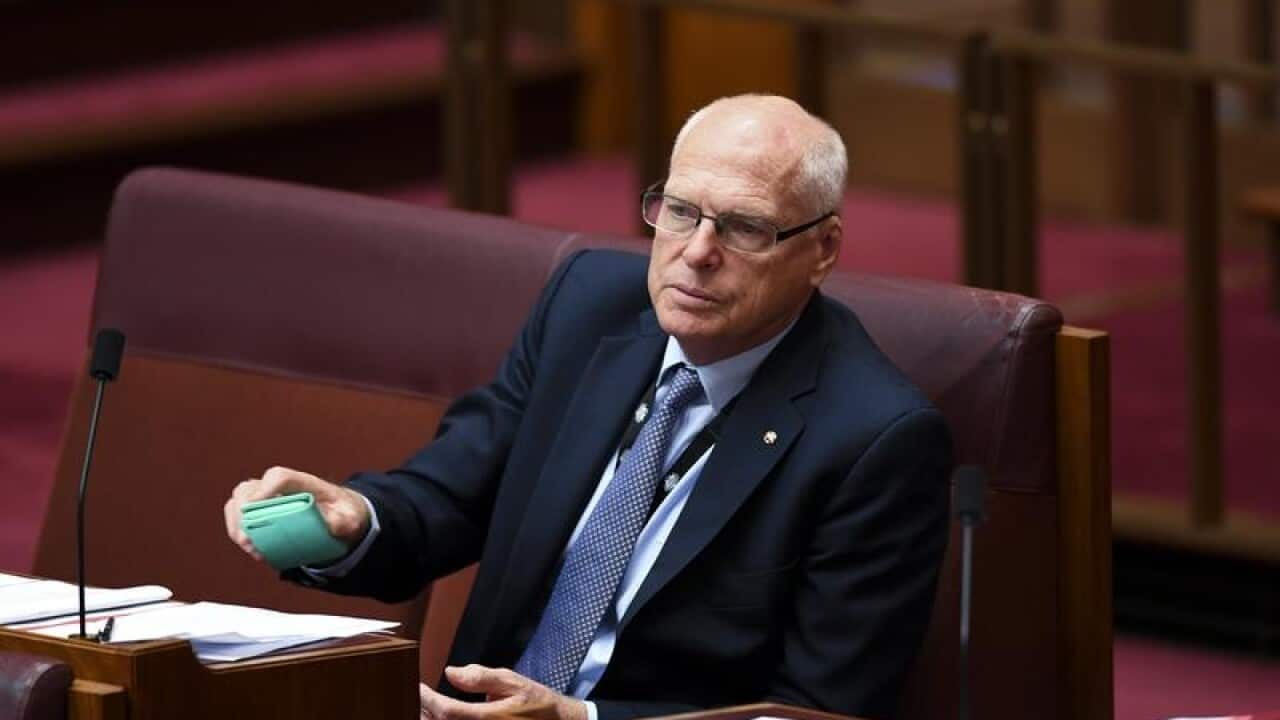For a group of talented Iranian students, life is in limbo.
They’ve all been awarded coveted PhD scholarships by Australian universities but many have been waiting more than a year without any response to their student visa applications from the Australian government.
It is understood 290 students from Iran have received scholarships from Australian institutions, and of those, 112 have been waiting for a response on their visa application for more than a year.
Mohammad Rezaei Ardani knows what that feels like.
The Iranian student was granted a full scholarship to complete a PhD at Melbourne's Swinburne University in 2016, but he withdrew his visa application after waiting eight months for an answer from the Department of Home Affairs.
The 34-year-old is now in Malaysia finishing his thesis in material science.
Other applicants are being approved in weeks, he said.
"Similar countries; Pakistan, India, Arab countries, they can get their visa within a timeframe, but for Iranian students, I know some students they are waiting for their visa more than two years," he told SBS News.
"It's not about the personality and the character of the student, it's about the nationality."
The students have now taken to social media to share their stories. Professor Bijan Samali, director of the Centre for Infrastructure Engineering at Western Sydney University, said he approved scholarships for three Iranian students between 12 months and two years ago.
Professor Bijan Samali, director of the Centre for Infrastructure Engineering at Western Sydney University, said he approved scholarships for three Iranian students between 12 months and two years ago.

The Iranian students have launched an online campaign. Source: Supplied
"In most cases, this visa should take only a couple of weeks, at most a couple of months, but in recent times unfortunately with Iranian students, this has been taking almost forever," he said.
"Silence is the worst answer."
Professor Samali said security checks can delay the process, given government sanctions on Iran.
Between 2006 and 2010, the United Nations Security Council imposed sanctions on Iran due to its refusal to suspend its uranium enrichment program. In 2016, previous sanctions were terminated but measures that restrict certain activities were imposed.
In addition, Australia imposes its own autonomous sanctions.
"We have to go through and fill out a sanction form and declare that their research area has no military applications, no precious metals extraction, nothing they consider as adverse to the interests of the West," Professor Samali said.
"Those forms generally get accepted by the university. I think it's the Australian government who has been extremely slow and very unresponsive in recent times."
Despite the United States withdrawing from the Joint Comprehensive Plan of Action - often referred to as the Iran nuclear deal - in 2018, Australia’s UN sanctions against Iran remain unchanged.
"Australia will work to tighten the net on Iran’s missile proliferation networks and support for activities that are destabilising the region," Prime Minister Scott Morrison said in December 2018.
"We will keep the option of additional autonomous sanctions under active review."
Professor Samali said not only is it unfair for students to be waiting so long because “they don't know where they stand”, it is also a burden on universities which are forced to delay research projects.
The students also risk losing their scholarships because the university offers aren't open-ended. As well as losing out on new applicants, there are additional fears the lack of federal government welfare support for international students already in the country will rob Australia of crucial research work.
As well as losing out on new applicants, there are additional fears the lack of federal government welfare support for international students already in the country will rob Australia of crucial research work.

Source: Supplied
Professor Ly Tran from Deakin University, who is an Australian Research Council Future Fellow, is concerned for Australia’s future research capabilities given international research students account for more than 30 per cent of total research candidates in Australia.
"Research into vaccine, research into mental health, research into medical science has been so vital to the health, wellbeing and living standards of Australians, so clearly we can't deny the role of research in advancing the development as well as the welfare of Australians," she said.
Professor Tran came to Australia as an international student from Vietnam 17 years ago and is disappointed by the treatment of international students during the pandemic.
"Especially when we compare Australia with other competitive major destinations for international students - for instance, New Zealand, the UK and Ireland - where international students have access to the equivalent form of jobseeker subsidies or wage support during the pandemic."  A month ago, the government announced it was re-starting the granting of student visas following its suspension due to COVID-19.
A month ago, the government announced it was re-starting the granting of student visas following its suspension due to COVID-19.

Source: Twitter/@RaminTp
Since SBS News enquired with the Department of Home Affairs about the delays prospective PhD students from Iran were facing, it is understood 17 visas were approved in one day.
A spokesperson for the department said: "Some applications may take longer as international shutdowns have made it difficult to source supplementary information like health and character checks".
“All non-citizens applying for visas to enter Australia are considered on an individual basis and against legal requirements set out in Australia’s migration legislation.”
“This includes meeting mandatory health, character and security requirements, which are often undertaken by other agencies, which can take time.”
“The timing for the completion of these checks varies from one case to another, depending on individual circumstances.”
Mohammad said students in the group just want answers so they can at least begin their studies online.











